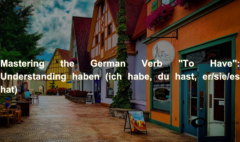WHERE DO ACCENTS COME FROM?
WHERE DO ACCENTS COME FROM?
The Birth of a New Accent – The English accents of people from Antarctica are very interesting.
A recent study in the Journal of the Acoustical Society of America found that the British Antarctic Survey, a group of experts who spend months alone in isolation, are developing a new English accents.
Estimated reading time: 4 minutes
During the study, there was a change in how people in the area said certain things. This probably happened because they were cut off from the rest of the world, so the accents of the people who lived there started to blend together.
This is a very rare chance to see language in action like this. In a world where the Internet and social media make it easy to talk to and pick up accents from people all over the world, it’s almost impossible to keep up with new language trends.
Even though most people are still isolating themselves and staying away from people, some people are noticing changes in their native English accent because there are less outside effects on their speech.

This research makes us wonder: Where do accents come from?
On the other hand, the word “dialect” refers to the words that a person or area uses that are unique to them.
The UK is the best place to hear different English accents. There are at least 37 different accents and languages in a country the size of Michigan, and each one is very different.
You can get a feel for the different sounds of the British Isles by reading Irvine Welsh, watching Peaky Blinders and listening to The Archers. Some UK accents are hard to understand even for people from the same country. For example, thick Scottish accents and North-East English accents can be hard for other Brits to understand.

But where did all these different voices come from?
How do accents grow over time?
Simply put, accents happen when people who speak the same language are separated from each other and, through change, start to agree on new names or ways to say words. Dozens of these small changes add up to a “local code” that is hard for people from outside the area to understand.
We call this new “code” an accent, a dialect, or, in the most extreme cases, a new language.
For example, English, Swedish, and Dutch were all once the same language called “Proto-Germanic. As a result, they created their own codes, which eventually turned into English, Dutch, Swedish, and dozens of other Germanic languages.

Separation and Highlights
This gives a lot of time for small changes to the code to grow and add up, becoming accents in the end.
The main reason for this was that people in Great Britain lived alone. Anglo-Saxon settlers brought their language to the UK about 1400 years ago. Mass transit didn’t become popular with the middle classes until the end of the 19th century. People from the working class rarely left the town where they grew up. This meant that their “code” was also a way to show that they were part of a group and were proud of it.
Learn Languages Store
Vashi,
Email: services@learnlanguages.store










